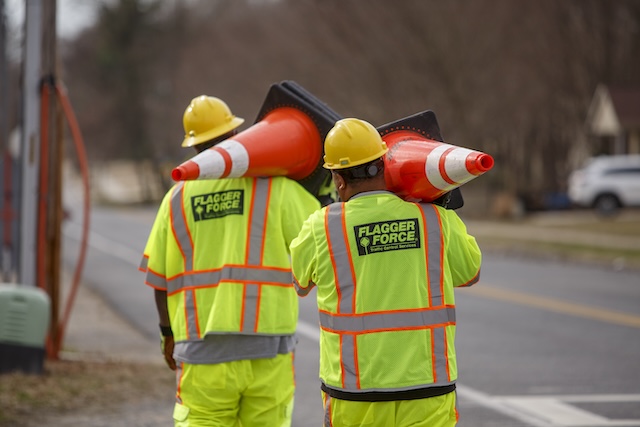Clean Slate Legislation is Key to Removing Barriers to Employment and Strengthening Communities
In Maryland, nearly one million adults have a criminal record. That’s approximately 2 out of every 10 adults in the state, according to The Clean Slate Initiative.
These justice-impacted individuals often face barriers when seeking employment because of social stigmas, unjust hiring practices, and systemic discriminatory policies. Even years after release, it can be difficult for them to find work. In fact, the unemployment rate for formerly incarcerated people is 27% – higher than it has ever been for the general population, as stated by the Responsible Business Initiative for Justice (RBIJ).
As the president and CEO of Flagger Force, an industry-leading, Safety-Driven®, short-term traffic control company employing more than 400 people in Maryland, I’m committed to building a diverse workforce of individuals from all backgrounds, identities, and experiences, including individuals who are justice-involved. Through my firsthand experience as a fair-chance employer hiring people with criminal records, I can attest that they are contributing team members who consistently positively impact the workplace.
The passage of Clean Slate legislation (SB602 and HB658) in Maryland is a critical step in breaking down barriers to employment for those with a criminal record and creating meaningful change in our communities. The proposed legislation is focused on automatically clearing qualifying criminal records if a person stays crime-free for a period of time. In Maryland, 410,000 people would be eligible to have their record fully cleared, providing them with a fresh start and fewer barriers to opportunity, according to The Clean Slate Initiative. The positive impacts of record clearance legislation would help minimize labor shortages, reduce recidivism, contribute to economic growth, and strengthen communities.
SB602 and HB658 would help break down barriers for a vital segment of the state’s workforce that deserves a fair chance and would help fill critical jobs. According to the U.S. Chamber of Commerce, Maryland has 33 available workers for every 100 open positions. The labor shortage plaguing Maryland and the entire United States has underscored fundamental breakdowns in connecting a ready-to-work population with career opportunities. Improved policies can make it easier to connect those who want to work with the vast opportunities that are available, leading to building candidate pipelines and reducing the workforce shortage.
A strong and stable economy is reliant on people working. According to RBIJ, the U.S. loses as much as $87 billion in gross domestic product (GDP) each year due to the underemployment of people with criminal records that could be, but have not been, cleared. The 22% of Marylanders with a criminal record face undue barriers that cause many to be excluded from jobs, adversely impacting economic expansion and stability.
When justice-involved individuals are left out of jobs, it also impacts their families and communities. Denying an individual with a criminal record employment has ripple effects on their housing and educational opportunities, which can perpetuate the very living conditions that may have contributed to their incarceration and negatively impact their children’s lives. Nearly 20,000 children in Baltimore City have an incarcerated parent, per the Baltimore City Health Department. When individuals are released from incarceration, they often return to their families and children. If they are unable to find employment, it can have unfavorable economic and psychological impacts on the family and lead to recidivism. Businesses have an opportunity to offer gainful employment and other support services to help break the cycle of recidivism and keep families together.
The contributions and potential of individuals cannot be fully realized by businesses, the economy, and our communities if the current system and policies inherently work against them. Sealing qualifying criminal records if a person stays crime-free for a period of time, as SB602 and HB658 propose, is a common-sense solution to removing artificial barriers to success in life for justice-involved individuals.
I fully support and advocate for SB602 and HB658, and I encourage my fellow business owners, employers of Marylanders, and community members across the state to do the same. Together we can fight systemic policies that underlie labor issues, improve economic expansion and stability, and keep our communities moving.

Mike Doner is the President and CEO of Flagger Force.

